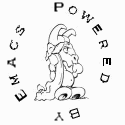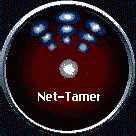

































































 |
Act, a compact and fast freeware browser that supports HTML 3.2 and CSS, though not JavaScript. |
 |
Activator, for Windows, "based partially on the Microsoft Internet Explorer controls for full compatibility with ActiveX, Java, SSL, and other internet protocols. It also performs free MaxMTU registry settings which may increase browsing and download speeds to double or quadruple faster speeds." (Recently it seems to have polysyllabified itself into "ActivatorDesk".) |
 |
Amaya, "intended to be a comprehensive client environment for testing and evaluating new proposals for Web standards and formats. . . . The Amaya binary distribution is available for PC Linux, Sparc /Solaris, AIX, OSF/1, Windows (NT and 95). Users having other architectures are expected to compile the Amaya source code" (which is freely available too). Amaya works as an HTML editor as well as a browser. |
 |
AOL Browser, for the Mac and Windows. The timid person's nonthreatening way onto the web. Still, they're said to make great server software. |
 |
Arachne, for DOS and Linux. The Linux version is still in beta, but the DOS version is full-screen, graphical, and has support for frames, etc., and also comes with an email client. |
 |
AvantGo, for PalmOS or Windows CE. It's free. |
 |
AWeb, for the Amiga. It has different HTML viewing modes, including one designed for viewing pages written so horribly that they'd crash other browsers. It has been kept up to date and indeed is bundled with Amiga OS 3.9 (released in 2001). |
 |
Barque, for Gnome. Still in early development. |
 |
Beonex Communicator, an open-source Mozilla derivative that's already available for Linux and Windows, and with one for Mac OS X in the works. |
 |
BeZilla, Mozilla for BeOS and now for Zeta. |

|
BrowseX (previously PDQ), a smallish, fast, open-source browser (compiled for Linux and Windows) with macro processor. |
 |
Camino, a Gecko-based browser for Mac OS X. |
 |
Cheetah, "a project that has been started to create a fully functional, light-weight, bloat-free web browser for Linux (and other free unix clones) that is not dependant on KDE, GNOME or Mozilla." |
 |
Chimera, for UNIX-based systems running the X window system. The author hopes it's "lean and mean and well house-trained". |
 |
Cineast, compiled for Linux, AIX and Solaris; but you can compile it yourself for other flavors of UNIX as the source code is freely available. |
| Clue, a Java component that supports CSS. | |
 |
Cyberdog, for the Mac, based on OpenDoc, produced by Apple, abandoned by Apple but not by its users. |
| Dillo, originating in Armadillo, a small and fast GPL browser that's known to run under Linux. | |
 |
DocZilla (previously MultiDocZilla), for XML and SGML as well as HTML; first for Windows, later for other OSes. |
 |
Emacs/W3, "a full-featured web browser, written entirely in Emacs-Lisp, that supports all the bells and whistles you will find in use on the web today, including frames, tables, stylesheets, and much more. Emacs/W3 runs on most major operating systems, including almost any flavor of Unix, Windows NT/95, AmigaDOS, OS/2, and VMS." |
 |
Epiphany, a Gecko-based browser for the Gnome desktop. |
 |
Espial Escape, a versatile and compact Java browser. |
 |
Mozilla Firebird (previously Phoenix), the browser component, now available separately, of Mozilla. |
 |
Fizzilla, a MacMozilla based on CarbonLib. "Fizzilla made its public debut onstage at the MacOS X Session at Apple's WWDC '99. People liked it." |
 |
ANT Fresco, originally for the Acorn NetStation, now for embedding in all sorts of devices. |
| Galeon, "a GNOME Web browser based on gecko (the mozilla rendering engine). It's fast, it has a light interface, and it is fully standards-compliant." | |

|
Grail, "an extensible Internet browser written entirely in the interpreted object-oriented programming language Python. It runs on Unix, and, to some extent, on Windows and Macintosh. . . . In particular, Grail is one of the few web browsers that support Solaris for Intel x86 processors." |
 |
HotJava: "A lightweight, highly customizable solution for OEMs and developers creating Web-enabled devices and applications. HotJava Browser's small footprint makes it an ideal, scalable solution for a variety of devices." |
 |
IBrowse, for an Amiga with KS3.0 or later, and as little as 4MB memory. (Mmm, nice planet.) Certainly the best-named browser, and one that's kept up to date as well. |
 |
iCab, "das Internet-Taxi für den Mac", a compact browser needing only 4MB of RAM. |
 |
Internet Explorer: Spyglass Mosaic Plus for Windows, Mac OS, and Solaris and HP flavors of UNIX. Microsoft's decision to give this program away was undoubtably the greatest act of unalloyed altruism of the twentieth century. Now, all the company needs do is give away the "Windows 2000" (NT 5) source code. |
 |
Jazilla, which will be a Mozilla-based browser in pure Java. |
 |
"Ua ho'oku'u 'ia Ka Ho'olele!" It's Navigator for the Mac, in Hawaiian. |
 |
K-Meleon, which "may be considered the unbloated Mozilla for Windows;" it's released under the GPL. (Button by Giacomo Zucchi.) |
 |
Konqueror, "the successor of kfm, the file manager and web browser in KDE 1.x", i.e. the K Desktop Environment, a free, open-source GUI for UNIX that has excellent support for CSS. |
 |
The Libwww Line Mode Browser, a text-only web browser for terminals. |
 |
LunaSuite, "a set of modular Internet utilities for Newton technologies with the Newton 2.1 Operating System." You get frames, tables, etc. |
 |
Lynx, "a text browser for the World Wide Web. Lynx 2.8.1 runs on VMS, Un*x, Windows 95/98 and NT but not 3.1 or 3.11, and on DOS (on a 386 or higher) via DJGPP. . . Ports to OS/2 and Mac are in beta test." And earlier versions run on other OSes as well. (For the full story of the graphic, see "Lynx Friendly".) |
 |
MacLynx, a text-only browser that "should work on black and white Macs, and still support extended HTML features like frames, forms, cookies and proxies. . . . [B]ear in mind this is a beta release, and the user interface is not very Mac-like, yet." |
 |
MacWeb, a compact browser suitable for old Macs. |
 |
MacWWW, aka Samba, the original browser for the Mac. This is version 1.00. "We know there is much to be improved, but it works well on system 7 and system 6.0.5", wrote Robert Cailliau and Nicola Pellow of CERN on 12 May 1993. |
 |
Minuet, which "will run on (virtually) any IBM compatible machine. It fits in 640K memory and can run in CGA mode, and can run on an 8088 class machine. It is now also capable to run in graphics mode." |
 |
MMM, "a WWW browser implemented in Objective Caml using its CamlTk41 interface to Tcl/Tk." It runs on "most Unix/X11 platforms". |
 |
NCSA Mosaic, for Windows, Mac OS, and UNIX with X Windows. (It has also been ported elsewhere.) The basis of Mosaic Netscape (aka Netscape Navigator) and Spyglass Mosaic (and thence MS Internet Explorer), as well as many other browsers. |
 |
Mozilla, the next generation Navigator (Communicator), from Mozilla.org. Runs on UNIX/Linux, Win9x/NT, Mac OS, and has been compiled for other OSes as well. The browser part of Mozilla is called Mozilla Firebird. |
 |
MultiWeb, a browser for people with disabilities using Windows 3 and above. |
 |
Netscape Navigator (or Communicator), for Windows, OS/2, Mac OS, and numerous flavors of UNIX. (Yup, the program derives from Mosaic, and this is the original Mosaic Netscape icon, from Mosaic Communications Corp. Oh, you wanted a Now! button?) To download older, pre-bloat versions of Navigator, and for other Netscape goodies, visit Antony Shen's Netscape Browser Archive. |
 |
Netcomber, for OS/2. Abandoned by IBM, but still available from this ftp site. |
 |
netomat, for the Mac, Windows, Linux, etc., invites you to have a dialogue with the web. What you experience, free of the constraints of the original pages, "has the feel of an anti-browser". |
 |
Netsurfer Control Panel, for Win9x and NT4. It "gives subscribers easy management and control of their Internet account with a look and feel similar to an 'online' access service. The overall result is increased customer satisfaction and higher profits." |
 |
Net-Tamer, a shareware program for DOS that includes a dialer, offline mail and news reader, and ftp client as well as the web browser. It requires 640K RAM, modem, and a floppy drive (720K or better) to run. There are three versions, one for computers up to 286, another for 386 or better, and a third for palmtops. |
 |
Newt's Cape, which "creates Newton books with text, graphics, hypertext links, tables and embedded forms from HTML (HyperText Markup Language) documents in your Notepad, Inbox, other applications, over a serial connection, or internet (Newton OS (NOS) >=2.0; Newton Internet Enabler (NIE) >=1.1). So, you can use Newt's Cape as a book creation tool and/or web browser." |
 |
Off By One, for Windows 95 and above, which "may be the world's smallest and fastest web browser with full HTML 3.2 support. It is a completely self-contained, stand-alone 1.1MB application with no dependencies on any other browser or browser component. . . . It's free, of course." |
 |
Omniweb, for NextStep, OpenStep, and Mac OS X. Description of an earlier version: "OmniWeb is designed to help you get information from the web quickly. We haven't thrown in a lot of other cruft that just complicates your life and slows things down. Unlike other browser companies, we don't think the web should be like TV, where you tune in to channels and passively watch whatever the powers-that-be decide you should watch." Well said. The new Omniweb has the same rendering engine that's used in Safari. |
 |
1X, for Win9x/NT, offering ActiveX but yet managing to fit on a single diskette. "Support for animated GIFs -- now you won't have to miss the endless adverts on web site banners." |
 |
Opera -- now, depending on the OS, up to version 7 -- a lean, no-nonsense browser for various flavors of Windows, for BeOS, FreeBSD, Linux/X11, Mac OS, OS/2, QNX, Solaris, and Symbian OS. |
 |
Palmscape, a Japanese- or English-interface browser for PalmOS 3.0 or above, supporting tables, frames, forms and channels. |
 |
Reqwireless WebViewer, a capable 49kB HTML web browser for Java mobile (J2ME) devices, including support for HTML, forms, and most image formats. |
 |
Safari, a browser based on Konqueror that's designed for fast work under Mac OS X. |
 |
UdiWWW, "a HTML3 compliant WorldWideWeb (WWW) Browser for Windows NT/95 or Windows 3.1". |
 |
ViewML, a compact browser for embedded Linux systems. |
 |
Voyager, for the Amiga. "Welcome to the brand new Vaporware website!" -- but it's real and it works. |
 |
WannaBe, "a limited text-only web browser for PowerPC or 68k MacOS computers" in the modest words of its author, David T. Pierson. It's reputed to be fast. |
 |
WebBoy, a browser and email client for DOS/V (a Japanese/English-language flavor of MS-DOS that runs on a standard IBM clone). |
 |
Web Prowler, for Windows, which "offers a professional, secure and user-friendly environment in which to 'surf'. Web Prowler 5.10 offers the highest security available in an internet browser. Any calls to 'Javascript' or 'ActiveX' are bypassed, and ignored, so that your computer is virtually hack-proof." (NB any decent browser either ignores or can be made to bypass Javascript and ActiveX.) |
 |
"I.O.D. 4: The Web Stalker, is a new, high protein way to use the World Wide Web. [It's a program for Mac OS or Windows] which takes the functions of a normal proprietary browser but strips it down to be rebuilt as something faster, dirtier and more predatory." And if that isn't enough, consider: "Technical Innovation = Class War." |
 |
Wen.Suite, an internet package for the Atari including an HTML 3.2 compatible WWW browser. |
 |
WWW/LX, for the HP Palmtop. |
 |
Zen, an unusually modular browser, distributed under GPL, that has been compiled for Linux and Solaris. |
(though they might be at evolt)
 |
AIR Mosaic, for Windows, Spry Corp's commercial improvement to NCSA Mosaic. |
 |
AMosaic, "the most widely known graphical browser for Amiga (at least for the moment). It's the program which will allow you to surf the Internet." |
 |
aMozillaX, "the name of the project currently being undertaken in an attempt to bring the world's greatest web browser, Netscape Communicator, to our Amigas." |
 |
ArcWeb, for the Acorn RISC OS. Stewart Brodie, its author, writes "There's nothing particularly awe-inspiring that ArcWeb does except try to be a solid viewer for standard HTML and a few of the daft extensions that people keep inventing. . . ." He stopped working on it in '98. Pity. There's an article by him about it here. |
 |
Arena from Yggdrasil, "a graphical web browser
comprised entirely of free software. . . . It is the
source of a number of innovations which have since been copied by
other web browsers, such as HTML tables and style
sheets. . . . [and is being turned into] a
full-featured free alternative to proprietary
browsers. . . . Arena runs on Linux and Linux-like
systems such as UNIX(R) that include the X window
system. . . . You are welcome to port Arena to other
platforms." "Hey, that graphic's not for Arena, it's for W3C." "Nope, it's not a 'W', it's 'YY'." |
 |
Ariadna, for Windows 9x and NT4. This has an English-Russian dictionary and is designed for Russian-language browsing -- as well of course as other-language browsing. (To restate the obvious, this page isn't best viewed with Ariadne, or anything else.) |
 |
Armadillo, previously Gzilla, "an open source, Gtk+-based web browser, written completely from scratch in C. It aims to be fast, efficient, highly extensible and fully standards-compliant." It lives on in Dillo. |
 | Browse-it, a server/client combination letting PalmOS devices surf the web. |
 |
CAB, for the Atari ST. |
 |
Cello, for Windows running on a 386SX or above. |
 |
Charlotte, for VM/CMS. (Apparently at gopher://p370.bcsc.gov.bc.ca/11/vmtools. |
 |
Chameleon WebSurfer, made by Netmanage for the Mac. |
 |
embedix UI, "a customizable, Linux-based HTML Web browser for mid-range to high-end embedded devices." |
 |
Lineo Embrowser, "a customizable, high-performance Web browser for Internet set-top boxes, interactive information kiosks, network computers, and hand-held devices" running DR-DOS. It was previously called DR-WebSpyder and was based on Arachne. Lineo then seemed to switch to embedix UI. |
 |
Emissary, for Windows, from the Wollongong Group (now part of Attachmate, it seems). |
 |
Apple's eWorld, made specially for a service that's now defunct. |
 |
The QNX IAT demo disk, a bootable diskette complete with TCP/IP software and the QNX Voyager browser, letting you browse the web even when your hard disk is kaput. (Choose between modem and LAN connection, and among English, Russian, and Japanese.) |
 |
I-Squire, for Windows and OS/2. It's "the Internet communications engine for Galahad", which is for BIX. |
 |
JoZilla, a "100% Java Open Source Code Internet Tool . . . Don't be a dinosaur, go mammalian! Join the JoZilla team today!" |
 |
The Light of Adamas, the browser component of the Draconis internet package, which will run on any Atari computer with at least 1MB of RAM. The Light of Adamas handles HTML 3.2 (4.0 is in the works), frames, and JavaScript. |
 |
Lite, a compact browser for the Japanese edition of Windows 95, etc. |
 |
Lynx/2, "the other Web Browser for OS/2". It's "a port of the text-based Lynx browser from UNIX . . . [and] may have new and interesting bugs. . . ." |
 |
NetPositive, which is part of BeOS.
On 1 November 2000, the relevant page (now dead) of Be's said
"Installing NetPositive 2.0.2 is very simple. You just need to
download the NetPositive package . . ." and "No versions
are currently available for purchase or download." Tyler Riti, who made this button, says "you are required to include the following somewhere on your page: 'Be is a registered trademark, BeOS is a trademark and Be icons are copyright of Be, Incorporated and are used with their permission.'" So I've just included it. (NB this page is of course not optimized for NetPositive or anything else.) |
 |
NetShark for the Mac, from Intercon (now Ascend). |
 |
Pathworks Mosaic for Windows, from Digital Equipment Corp. Last heard of in 1994, but this page may yet announce an update. (See a Linux/Wine screenshot of it here.) |
 |
Procomm Plus web browser for Windows, from Datastorm -- since gobbled up by Symantec, which seems to have dumped the internet-related components. (See a Linux/Wine screenshot of it here.) |
 |
ProxiWeb, which "empowers Palm Pilot and Windows CE Palm-sized PC users with fast, online graphical web access -- all in the palm of their hand." |
 |
SlipKnot, "a Windows-based graphical WWW browser which does NOT require SLIP or PPP or TCP/IP. Designed for users of UNIX dial-up or direct connect shell accounts, SlipKnot has a number of features included specifically for serial communications users." (Here's a fuller description.) |
 |
SpiderWoman, for Nextstep, "with some unique features" such as Socks security. |
 |
Spry Mosaic, for Windows and the Mac. (Hmm, I don't know how this was related to Air Mosaic.) |
 |
Spyglass Mosaic, for Mac and Windows, which later became Internet Explorer, as well as Spyglass Device Mosaic. |
 |
StarOffice is an MS Office-inspired do-everything package for Solaris, Windows 9x/NT, Linux (x86 only), OS/2, and Java. It used to have a browser component, but no longer has one. |
 |
Tango: "Under any version of Windows, Tango can single-handedly display Web pages authored in any of over 90 languages", thanks in part to Unicode. A product of Alis Technologies, whose main page now plugs Netscape. |

 |
VOL Tiber, for Mac OS or Windows. There is or was an Arabic Windows version, too. "UNIX versions are under development", said the web page ("© 1995"). |
 |
WebExplorer, for OS/2. |
 |
WebNav, for OS/2: "a web browser built to be compact and easy to use". |
 |
Top Gun Wingman, a graphical WWW browser for the Palm Pilot. |
 |
Winweb, in its day a fast and stable browser for Windows. |
It seems half the world wants to put across some simplistic message about browsers -- "Optimized for X", "Best viewed with Y", "Requires version Z or above of X or Y", "X sucks", etc. What do they think we are -- retards?
And would you believe that, in October 1999, 73% of American companies surveyed had a "Corporate Browser Policy"? Doesn't Corpulent America have anything better to do than legislate which software should be installed on its drones' computers? Corpulent stupidity, if you ask me.
My one cent's worth: There are lots of browsers around. Many are very good, and some are better than others. Nothing worth losing sleep over, unless you're actually programming one of them -- and if you are, I wish you all the best.
Disappointed that I don't have your favorite (or least favorite) browser? Here are more names and URLs: ALynx, Arena i18n, Avanti, Bobcat, BrailleSURF, BrookesTalk, Browse, Charon, Closure, the Contiki Web Browser, DOSzilla, DPWeb, EnterWEB, ESEWWW, Express, Go.Web, IBM Web Browser, ICE Browser, Internet Adventurer, iPhone, JustView, Kylie, Links, Lotus Notes, MidasWWW, mMosaic, Mnemonic gtkBrowser, NetFront, NEWSie, Smoke Zone Phoenix Pro, Planetweb, pwWebSpeak, Pyleon, Q.BATi, QtMozilla, QWeb, Rozilla, squeak scamper, SkipStone, NewDeal WebSuite Skipper Pro, SPIN, Termite, TkWWW, QNX Voyager, w3m, Warpzilla, Wbrowser, . But I don't have compact graphics for them. Supply me with a nifty little graphic for one of these, or for another browser, and I'll add it to the illustrated list above.
Numerous other software packages described as browsers -- Enigma, FreeWebBrowser, Jueti, NeoPlanet, Nitro, etc. -- require Internet Explorer, or occasionally Navigator. They seem not so much browsers as interfaces. If I realize that a "browser" falls into this category, I don't bother to list it. But if any have slipped in, let me know.
I've been a bit more lenient toward the various 'zillas as they are open-source and therefore a Good Thing. But be careful: yes there is a "MacZilla", but no it's not a browser; meanwhile, "Go!zilla" and "ZipZilla" aren't browsers but are spyware.
Some other good stuff:
See also Graham Nasby's stupendously big List of Web Browsers for every operating system anyone would want to use (he has actually amassed useful information about this stuff, and I first learned of the existence of some browsers from his page), Darrel E. Knutson's informative and elegant Macintosh Web Browsers, Present and Past, Graeme Cross's list of web browsers for Linux, the elegiac yet optimistic page TBOBL Amiga Browsers, Daniel Tobias' "Brand-X" Browsers: Beyond the Big Two (a very informative page), and evolt's Browser Archive -- where you'll find the actual software (particularly useful for orphaned browsers). If you're historically minded, try Eugene Kim's Windows World Wide Web Browsers Review (December 1994), as well as Chuck Lau's Origin of a browser: Netscape time capsule.
You have some strong opinions on Internet Explorer or Navigator? Whether they're for or against, tell somebody else, not me! If you're looking for venom, see Nathan Lineback's IE 4 is evil, and so is IE 5, and the understandably anonymous Reasons why Netscape sucks.
However, if you have any other ideas, suggestions, or corrections for this page, please email me, or, even better, note it in my (classy, Swiss) guestbook. (Thanks already to Denise Butler, Stephen Carter, Lloyd Colston, Mel Evans, Simon Goodwin, Jens Heitmann, Olav Hennings, Darin McGrew, Graham Nasby, Christopher Reid Palmer, QingLong, Liam Quinn, David Edward Ratti, Antony Shen, Roger Skubowius -- and particularly Joshua Holman, for sending me news of browser after browser; Darrel E. Knutson, for letting me swipe his collection of icons of funky old Mac browsers; and Nathan Lineback, for not only telling me of but also digging up graphics for Pathworks Mosaic and Procomm web browser.)
Now take a look at Jutta Degener's Hypercybersupercalifragilisticexpialidocious! and specifically its very bottom line.
First sellotaped together (by Peter Evans): 10 February 1999. Last fiddled with: 7 September 2003. Praise Xenu!